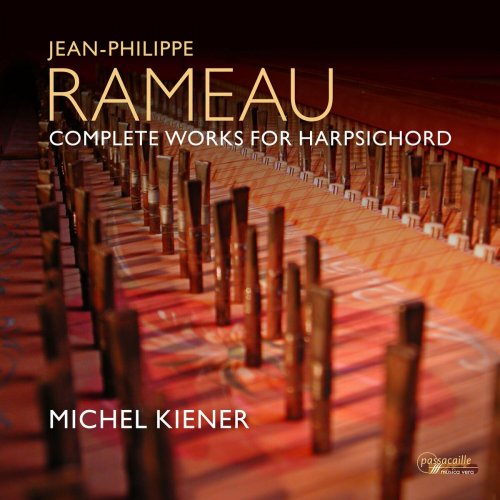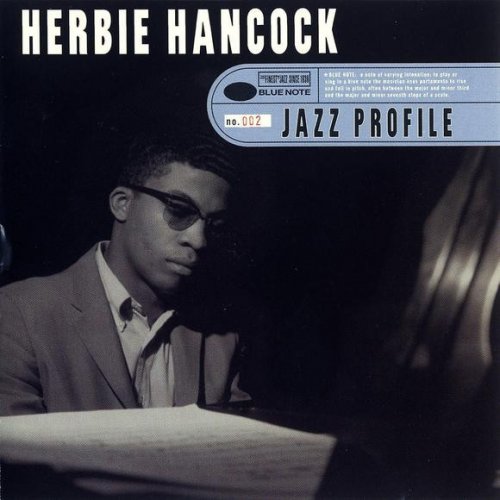Michel Kiener - Jean Philippe Rameau: Complete Works for Harpsichord (2023) Hi-Res

Artist: Michel Kiener
Title: Jean Philippe Rameau: Complete Works for Harpsichord
Year Of Release: 2023
Label: Passacaille
Genre: Classical
Quality: FLAC (tracks) / FLAC 24 Bit (48 KHz / tracks)
Total Time: 145:41 min
Total Size: 994 MB / 1,7 GB
WebSite: Album Preview
Tracklist:Title: Jean Philippe Rameau: Complete Works for Harpsichord
Year Of Release: 2023
Label: Passacaille
Genre: Classical
Quality: FLAC (tracks) / FLAC 24 Bit (48 KHz / tracks)
Total Time: 145:41 min
Total Size: 994 MB / 1,7 GB
WebSite: Album Preview
01. Suite in A Minor, RCT 1: I. Prélude
02. Suite in A Minor, RCT 1: II. Allemande
03. Suite in A Minor, RCT 1: III. Deuxième Allemande
04. Suite in A Minor, RCT 1: IV.. Courante
05. Suite in A Minor, RCT 1: V. Gigue
06. Suite in A Minor, RCT 1: VI. Sarabande
07. Suite in A Minor, RCT 1: VII. Deuxième Sarabande
08. Suite in A Minor, RCT 1: VIII. Vénitienne
09. Suite in A Minor, RCT 1: IX. Gavotte
10. Suite in A Minor, RCT 1: X. Menuet
11. Suite in E Minor, RCT 2: I. Allemande
12. Suite in E Minor, RCT 2: II. Courante
13. Suite in E Minor, RCT 2: III. Gigue en rondeau I
14. Suite in E Minor, RCT 2: VI. Gigue en rondeau II
15. Suite in E Minor, RCT 2: V. Le Rappel des Oiseaux
16. Suite in E Minor, RCT 2: VI. Rigaudon I - Rigaudon II et Double
17. Suite in E Minor, RCT 2: Musette en rondeau. Tendrement. Musette en rondeau. Tendrement
18. Suite in E Minor, RCT 2: VIII. Tambourin
19. Suite in E Minor, RCT 2: IX. La Villageoise. Rondeau
20. Suite in D Major, RCT 3: I. Les tendres plaintes (Rondeau)
21. Suite in D Major, RCT 3: II. Les niais de Sologne
22. Suite in D Major, RCT 3: III. Les soupirs
23. Suite in D Major, RCT 3: La joyeuse (Rondeau)
24. Suite in D major, RCT 3: V. La follette (Rondeau)
25. Suite in D major, RCT 3: VI. L'Entretien des Muses
26. Suite in D Major, RCT 3: VII. Les tourbillons (Rondeau)
27. Suite in D Major, RCT 3: VIII. Les cyclopes (Rondeau)
28. Suite in D Major, RCT 3: IX. Le lardon (Menuet)
29. Suite in D Major, RCT 3: X. La boiteuse
30. Suite in A Minor, RCT 5: I. Allemande
31. Suite in A Minor, RCT 5: II. Courante
32. Suite in A Minor, RCT 5: III. Sarabande
33. Suite in A Minor, RCT 5: IV. Les trois mains
34. Suite in A Minor, RCT 5: V. Fanfarinette
35. Suite in A Minor, RCT 5: VI. La triomphante
36. Suite in A Minor, RCT 5: VII. Gavotte et six doubles
37. Suite in G Major, RCT 6: I. Les tricotets
38. Suite in G Major, RCT 6: II. L'Indifférente
39. Suite in G Major, RCT 6: III. Menuet 1 et 2
40. Suite in G Major, RCT 6: IV. La Poule
41. Suite in G Major, RCT 6: VI. Les Sauvages
42. Suite in G Major, RCT 6: VII. L'Enharmonique
43. Suite in G Major, RCT 6: VIII. L'Egyptienne
44. La Dauphine, RCT 12
Recorded sets of Rameau’s complete original harpsichord pieces – in other words, including the 1706 Premier livre de pièces de clavecin as well as the more commonly investigated 1724 Pièces de clavecin and the 1728 Nouvelles suites de pièces de clavecin – are still surprisingly rare, so this new arrival on the scene from Swiss harpsichordist Michel Kiener ought to be a welcome one. Kiener may not have troubled the cataloguers too much in the past, but he is a player with a crisp and tidy technique well able to withstand the close scrutiny of recording one of the great monuments of the harpsichord repertory. The impression – heightened by a punchy (and punchily recorded) instrument – is of strong fingers marshalled with impressive control.
What is not so evident, however, is much true feeling for the music. Rameau covers a wide variety of moods in these 45 pieces, but whether looking for the grandeur of the 1728 Allemande, the dramatic eloquence of L’Entretien des Muses, the mystery of L’Enharmonique, the whirling virtuoso excitement of Les Cyclopes, the epigrammatic humour of Le Lardon, or the sheer simple prettiness of Vénitienne, Kiener fails to find them. Not even the more concrete visual images of a scratching chicken (La Poule) or sudden, swirling gusts of wind (Les Tourbillons) seem to inspire him much. He is at his best in drivingly energetic pieces such as the Rigaudons and ‘Tambourin’ and the big variations sets Niais de Sologne and ‘Gavottes et doubles’, but elsewhere his frustrating rhythmic inflexibility and plonky use of inégales drains the music of much of its effectiveness and charm. If Kiener has any real affection for Rameau’s music (and who could not?), something is preventing him from showing it here.
Production failings also detract from the allure of this recording, including a couple of finger-slips that could surely have been edited out, an irritating tendency to fade out background atmosphere between pieces, and an insert note that is well-informed but misfiringly sketchy (and translations are an easy target, I know, but I am sure that ‘limpness’ is not what Rameau meant to portray in La Boiteuse). No, this recording makes no headway against its two most recent rival sets: Blandine Rannou’s on Zig Zag suffers from excessive self-indulgence, for sure, but it does not lack for imagination; while the exquisite technical skills and free-flowing musicality of Christophe Rousset on L’Oiseau-Lyre puts his in a higher class altogether.
What is not so evident, however, is much true feeling for the music. Rameau covers a wide variety of moods in these 45 pieces, but whether looking for the grandeur of the 1728 Allemande, the dramatic eloquence of L’Entretien des Muses, the mystery of L’Enharmonique, the whirling virtuoso excitement of Les Cyclopes, the epigrammatic humour of Le Lardon, or the sheer simple prettiness of Vénitienne, Kiener fails to find them. Not even the more concrete visual images of a scratching chicken (La Poule) or sudden, swirling gusts of wind (Les Tourbillons) seem to inspire him much. He is at his best in drivingly energetic pieces such as the Rigaudons and ‘Tambourin’ and the big variations sets Niais de Sologne and ‘Gavottes et doubles’, but elsewhere his frustrating rhythmic inflexibility and plonky use of inégales drains the music of much of its effectiveness and charm. If Kiener has any real affection for Rameau’s music (and who could not?), something is preventing him from showing it here.
Production failings also detract from the allure of this recording, including a couple of finger-slips that could surely have been edited out, an irritating tendency to fade out background atmosphere between pieces, and an insert note that is well-informed but misfiringly sketchy (and translations are an easy target, I know, but I am sure that ‘limpness’ is not what Rameau meant to portray in La Boiteuse). No, this recording makes no headway against its two most recent rival sets: Blandine Rannou’s on Zig Zag suffers from excessive self-indulgence, for sure, but it does not lack for imagination; while the exquisite technical skills and free-flowing musicality of Christophe Rousset on L’Oiseau-Lyre puts his in a higher class altogether.



![Keyvan Chemirani - Tales of Nar (2026) [Hi-Res] Keyvan Chemirani - Tales of Nar (2026) [Hi-Res]](https://img.israbox.com/img/2026-02/05/2f0crjk19rw3dp7xd5h38ofxr.jpg)
![Suntou Susso - Jaliya Silokang (The Path of a Griot) (2025) [Hi-Res] Suntou Susso - Jaliya Silokang (The Path of a Griot) (2025) [Hi-Res]](https://img.israbox.com/img/2026-02/02/fx7n1o7vkgvz64y2vdawp9o8r.jpg)



